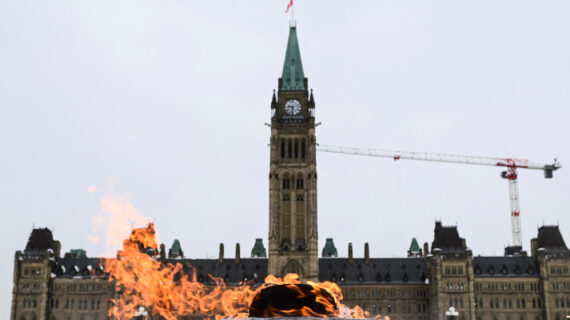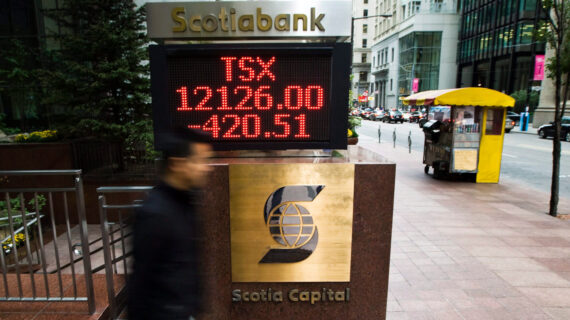When the Liberal government came to power, it quickly tried to shift the focus away from deficits and onto the debt-to-GDP ratio. The rationale was politically and economically straightforward: if Canada’s GDP rises along with the debt, then the ratio doesn’t spiral.
But now, with deficits ballooning and the government pledging to grow its way out of mounting debt, an essay at The Hub about the budget’s lack of a plan for economic growth was front and centre at question period on Friday.
“After doubling our federal debt in only six years, and spending close to a trillion dollars, not moving the needle on long-term growth would be the worst possible legacy of this budget,” said Pierre Poilievre, the Conservative Party’s jobs and industry critic, who was quoting an essay published at The Hub by Robert Asselin, the senior vice-president of policy at the Business Council of Canada.
The government’s priority is, first and foremost, to protect jobs that are immediately under threat by the economic shock of the pandemic, said Sean Fraser, the parliamentary secretary to Finance Minister Chrystia Freeland, in response.
“I will remind (Poilievre) that one of the most important things we can do to contribute to a growth-oriented recovery is preserve the jobs that we have now,” said Fraser.
After tabling the budget last week, Freeland declared her commitment to economic growth as an escape hatch from the debt that is rapidly piling up on the country’s books.
“The best way to pay our debts is to grow our economy,” said Freeland.
With the country facing a $354 billion deficit in 2020-21 and the following year’s books projecting a deficit of $155 billion, economists have warned that while it’s possible to use economic growth to grow the country out of debt, it’s a slow and risky process.
“If another recession or two hits, debt will rise. If an expansion continues unabated, debt will fall. We just don’t know which of the two will happen. It may be prudent to prepare for the worst,” wrote Trevor Tombe, a University of Calgary economist.
There has been a rising chorus lately warning about lacklustre growth in Canada.
Earlier this month, Scotiabank CEO Brian Porter warned about the “two percent trap” Canada has fallen into and recommended pro-growth policies as the country emerges from the pandemic. At the top of Porter’s list were increased child benefits and child tax credits, a capital investment grant for businesses, and increased free trade between provinces.
That’s the kind of thing Asselin found wanting in last week’s budget.
“Although some of the objectives and proposed measures… should be applauded, it is hard to find a coherent growth plan,” wrote Asselin.




